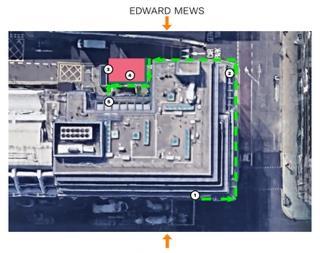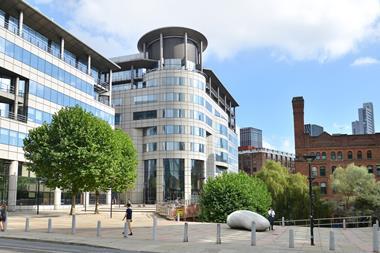The potential for disruption to cross-border investment and relocation is, on the face of it, substantial. The Welsh Development Agency has been strengthened in preparation for devolution.
Many observers imagine that a new Welsh government, eager to achieve results quickly, will find the temptation to flex its economic muscles hard to resist.
Yet the property industry either side of Offa's Dyke remains serenely unmoved. Why? If any part of England has a right to be worried by Welsh devolution, it is Ellesmere Port in Cheshire. Tucked between the River Dee and Mersey estuaries, the district blends seamlessly into north Wales.
Its proximity to Chester – only six miles away – has kept the district in the shadows and its economic promotional activities are relatively new. The region also suffers from what has long been perceived as a more generous grant regime on the Welsh side of the border.
Surely, then, it is more than just a coincidence that Ellesmere Port is launching a new marketing initiative in the run-up to Welsh devolution?
Council marketing initiative
According to Brian Birtwistle, director at DTZ Debenham Thorpe and one of the leaders of Ellesmere Port's marketing push, nothing could be further from the truth.
'Ellesmere Port has been an area lacking in investment and the council decided it needed to do something about it,' says Birtwistle.
'There will always be companies that want to locate their businesses on the Welsh side of the border. It's inevitable. But they are not the people we're targeting. Although Deeside across the border does look good, and the grant regime is more favourable, I assure you this marketing initiative has absolutely nothing to do with devolution.' Key sites, such as the 10.4ha (26 acre) Lees site and the 11.3ha (28 acre) Rossfield site, both in the centre of the town, will instead be aimed at indigenous occupiers.
On the Welsh side of the border, the attitude seems similarly relaxed. The Merseyside-based Universities Superannuation Scheme (USS) bought the 65,000 sq m (700,000 sq ft) Deeside Industrial Park East in 1994 for around £12.5m.
The story of its involvement with the park makes a revealing case study of the strengths and weaknesses of the Welsh Development Agency.
Although the Welsh side of the border enjoys greater access to grants and powerful public sector support, it suggests that neither English nor Welsh property investors need be too concerned about devolution.
When USS acquired Deeside East, the void rate was around 40%. Many observers thought USS had taken on a turkey. But USS has proved them wrong.
An improvement in the environment, a lick of paint and new signs, together with a more interventionist approach to the management of the industrial park, has paid off.
Brisk activity in the past year
David Jackson, asset manager with the park's joint agent, Jones Lang Wootton, explains. 'The past 12 months has seen a string of deals. This has justified the decision to purchase the park that some, at the time, saw as a risk. We've taken the opportunity to get performance from void units. And, working on low rents and offering plenty of land for expansion, we've managed to turn the park around.' Lettings include the filling of the park's largest void – a 5,110 sq m (55,000 sq ft) unit empty for four years – by supermarket brand manufacturer IWP International. The company has signed up for a 20-year lease at £32.30/sq m (£3/sq ft) in a deal that includes a 75,710 sq m (81,500 sq ft) new-build extension.
A second, larger unit of about 18,580 sq m (20,000 sq ft) was let to industrial occupier Marybern at around £38/sq m (£3.50/sq ft).
The moral of the tale is that, although the Welsh Development Agency may be a powerful tool for economic regeneration of the country, it still leaves plenty of room for enterprising developers and investors to turn an honest penny.
'The Welsh Development Agency is there to create jobs for the region but we have come in to manage property. That means a change from the Welsh Development Agency's rather hands-off approach to management,' says Jackson.
'It also means we've improved the environment, pushed rents up from £2.50/sq ft and managed the park successfully.' As Deeside East shows, in the end it is the quality of the property and not the politics that matters.
Topics
Cheshire & North Wales - Regional Survey
- 1
- 2
- 3Currently reading
Cross border
- 4
- 5
- 6
- 7
- 8





























